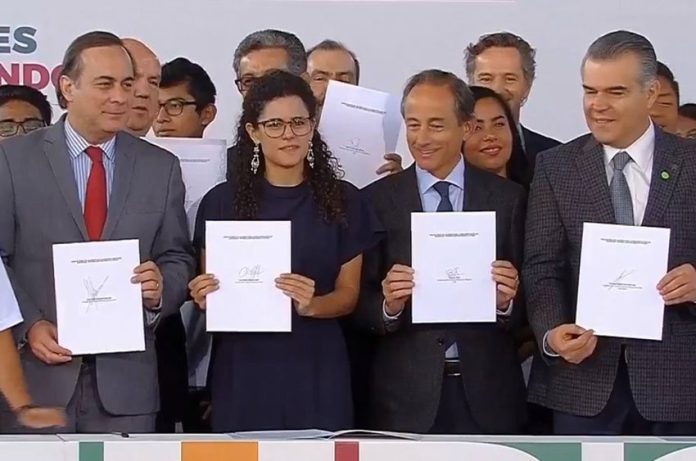The federal government officially launched its youth training program yesterday, making good on President López Obrador’s campaign promise to foster becarios (scholarship holders) rather than sicarios (hired assassins).
Labor Secretary Luisa Alcalde said the apprenticeship scheme, called “Youths Building the Future,” will offer job training and monthly stipends of 3,600 pesos (US $175) to 2.3 million young people who currently neither work nor study (ninis, in Spanish, for ni estudian, ni trabajan). Its total cost will be 100 billion pesos (US $4.9 billion).
People aged between 18 and 29 will be eligible for the program, which will link them to businesses or other organizations where they will undertake training to develop their work skills and abilities.
The participants will also be offered medical insurance and receive a certificate upon completion of the program, which can extend up to one year. The scheme is designed to help young people find a permanent job in the labor market.
Alcalde said that 230 companies and organizations have already agreed to participate in the scheme and that young people can apply to take part from January 1.
She explained that it is intended to reduce risk factors that can lead young people to become involved in criminal gangs.
“This is so that every young person who wants [job] training can get it. We have the chance to change the lives of millions of young people . . . If I had to describe this program in one word it would be inclusion. It takes young people into account so that they don’t fall into the cycle of violence,” Alcalde said.
The labor secretary said that Mexico needs the nation’s young people to achieve its social and economic objectives, charging that past governments have neglected the demographic.
“It was Mexico and its governments who failed young people, this program begins with the profound conviction that there is still time to provide opportunities to this sector [of the population]. Youth are not a vulnerable group, they have been harmed and forgotten by the policies of government,” Alcalde said.
“We have no right to fail young people. If we help them get ahead, this country will definitely change . . .” she added.
Security Secretary Alfonso Durazo, who also attended yesterday’s launch, agreed that the program would help to dissuade young people from getting involved in crime.
He said poor economic conditions and a lack of opportunities for youth over the past three decades had allowed drug cartels to prey on them.
“Starting this program is to settle one of the historic debts we have as a society and country with young people,” Durazo said.
Juan Pablo Castañón, president of the influential Business Coordinating Council (CCE), also gave a thumbs-up to the scheme, saying it would improve young people’s job opportunities and allow them to develop their talents.
“We’ll become tutors, we’ll encourage [the development of] technical as well as socio-emotional skills so that young people can succeed in the working world,” he said.
Source: El Universal (sp)
